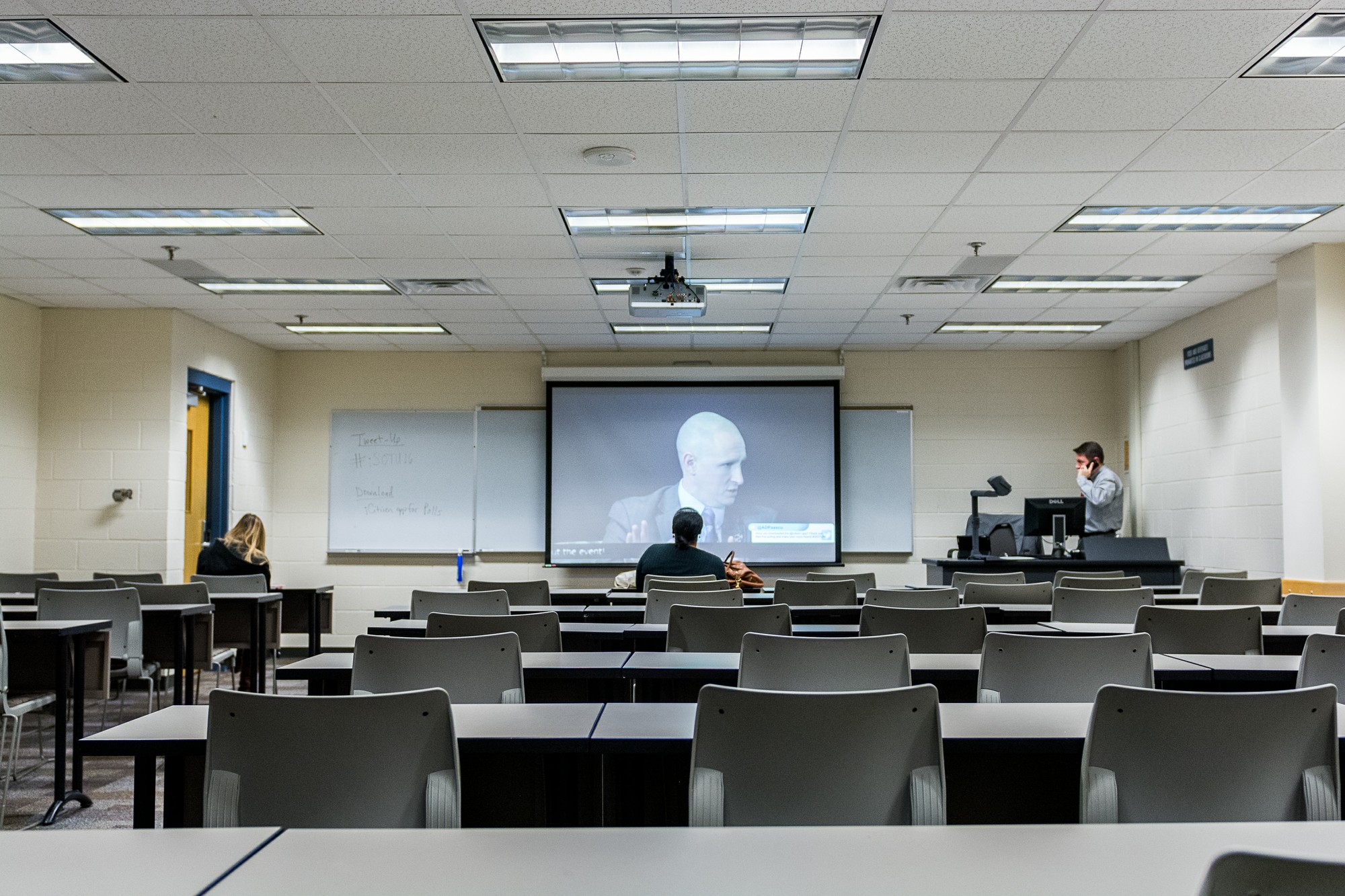Leading scholars of Middle Eastern affairs gathered Wednesday, discussing the causes and consequences of the Arab uprisings that have inspired millions to take to the streets in efforts to oust long-time dictators in pursuit of democracy for their nations.
The three-member panel discussion was coordinated by KSU’s College of Humanities and Social Sciences in conjunction with the Institute for Global Initiatives and the Ph.D. program in International Conflict Management. Panelists included Maia Hallward, a professor of Middle East politics; Marcus Marktanner, a professor of Conflict Management and Economics; and Rami Khouri, a Palestinian scholar and journalist who directs the Institute for Public Policy and International Affairs at the American University of Beirut.
Causes and Commonalities
“The main causes of the Arab uprising, I think, were pretty simple,” Khouri began. “350 million nationals of Arab countries wanted to be citizens.”
The Arab Spring is the name given to the wave of anti- government demonstrations that have swept the Middle East since late 2010.
“They wanted to live a better life with more dignity, more social justice, more accountability, less corruption, more participation, more voice, more social equity and more basic human rights as citizens of those countries,” Khouri said.
He said although the causes of the uprisings are similar, the differences between the nations’ struggles are quite significant. He pointed to NATO’s involvement in Libya’s conflict and compared it to Syria’s civil war, which Khouri called “the biggest proxy battle of all time,” and an “existential war that nobody can afford to lose.”
In a New York Times article published the day of the discussion, Khouri called the conflict in Syria “the world’s greatest proxy war since Vietnam,” adding that Russia, Iran, Saudi Arabia and the U.S. all have a vested interest in seeing how the civil war plays out.
“Everybody is fueling this barbaric war and watching the Syrians fight it out like gladiators ¬– one of them will live and one of them will die,” Khouri said Wednesday.
Islamic Militant Groups
The panelists were then asked to discuss the role of religious groups seeking to gain political power in the region by garnering support from citizens.
Khouri referred to the fringe groups as “militant, cult-like crazies,” who “use violence indiscriminately” and said they are trying to create pockets of Islamic states in the Middle East but have the support of very few Muslims. He said these Islamic militant groups can only thrive in situations of total chaos. He listed Afghanistan, Yemen, Somalia, post-war Iraq, Syria and the frontier regions of Pakistan as places Islamic militant groups thrive by gaining support in regions with governments that have been weakened by regional conflict.
“I wouldn’t call them religious groups,” Khouri said. “These guys are fringe militant terrorists. I would not dignify them by calling them religious groups.”
He said the Muslim Brotherhood was an example of a religious group, adding that they “use religion as a vehicle to do politics.”
Khouri then drew parallels between the religious leaders of Arab uprisings and the leadership of the clergymen who spearheaded the American Civil Rights Movement.
“These were people who ran churches. They were preachers,” Khouri said. “They also went out and led a political revolt.”
Hallward said if you look at the histories of the different countries involved in the Arab uprising, they have different legacies based on different colonial powers and different dynamics that led to uprisings and revolutions within those nations.
Role of Social Media
The panelists also discussed the role social media and digital communications played in spreading the word of the uprisings and getting people to protest in the streets.
Khouri said social media played a vital role in the first days and weeks of the uprisings in Tunisia and Egypt before the governments shut off cell phone and internet connections and news was spread by word of mouth.
“Social media in relation to the Arab uprising is like Paul Revere’s horse in relation to the American Revolution,” he added.
International Relations
The panelists concluded the discussion with a conversation about the importance of communication between world powers. The general consensus was that the United States’ recently renewed dialogue with Iranian leaders is positive for both nations.
“You can’t expect the Iranians to negotiate with you when you’re sanctioning them and threatening them,” Khouri said. “Now we’re seeing a better way to do it.”

